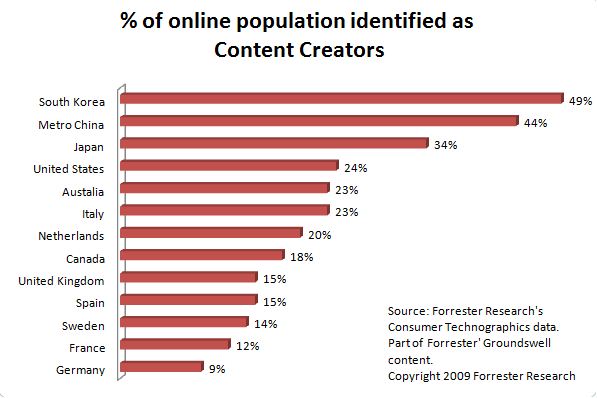This week, I found my Social Media Zeitgeist in posts by John Battelle, Steve Rubel, Cory Doctorow, Jeff Jarvis, Michael Geist, Liz Gannes and David Armano.
Foursquare: Headed to bigger things – or a potential flame out?
Could Foursquare be the next shiny object that fails to live up to its initial glitter? John Battelle’s post, Foursquare, I wish it was better for me, highlights some hurdles that Foursquare must overcome before the service is likely to break into the mainstream. Whether it’s the feeling that it’s targeted at a specific demo (what the heck am I doing on it?), the lack of engagement beyond checking in, poor search or an unclear function in the social sphere, there’s a lot of work to do to ensure that Foursquare doesn’t flame out.
Living – or not – with the iPad
It’s the week after the excitement of the launch. Now, people are reporting their experience living with the iPad. And some could do without it.
Steve Rubel spends a  week working with only the iPad. While he seems to love the device, he calls out Apple for undermining the Web as we know it: “Seemingly overnight the Information Superhighway (does anyone call it that anymore?) became littered with potholes. In the last week Apple sold nearly 500,000 iPads, none of which support key technologies that we have come to rely on, including Adobe Flash, Windows Media and others. (Adobe and Microsoft are Edelman clients.) …For the last week I have been using my iPad as my primary device. I enjoy the slate format and think it’s the next big thing for computing – one that will see lots of winners. Unfortunately, this comes at a cost. I don’t get to experience the web like I used to, but a version of it that only Apple approves of – one that’s peppered with potholes that turns it into the swiss cheese web.”
week working with only the iPad. While he seems to love the device, he calls out Apple for undermining the Web as we know it: “Seemingly overnight the Information Superhighway (does anyone call it that anymore?) became littered with potholes. In the last week Apple sold nearly 500,000 iPads, none of which support key technologies that we have come to rely on, including Adobe Flash, Windows Media and others. (Adobe and Microsoft are Edelman clients.) …For the last week I have been using my iPad as my primary device. I enjoy the slate format and think it’s the next big thing for computing – one that will see lots of winners. Unfortunately, this comes at a cost. I don’t get to experience the web like I used to, but a version of it that only Apple approves of – one that’s peppered with potholes that turns it into the swiss cheese web.”
Writing on Boing Boing, Cory Doctorow called it this way: “The real issue isn’t the capabilities of the piece of plastic you unwrap today, but the technical and social infrastructure that accompanies it.
“If you want to live in the creative universe where anyone with a cool idea can make it and give it to you to run on your hardware, the iPad isn’t for you.
“If you want to live in the fair world where you get to keep (or give away) the stuff you buy, the iPad isn’t for you.
“If you want to write code for a platform where the only thing that determines whether you’re going to succeed with it is whether your audience loves it, the iPad isn’t for you.”
And Jeff Jarvis, saying he doesn’t see a good use for the iPad, put his money behind his convictions, paying a restocking fee to return his unit after less than a week.
Copyright no longer an esoteric subject in Canada
Michael Geist tallies up the Canadian Government’s consultation on its proposed copyright reform bill, C-61: “There were ultimately more than 8,300 submissions – more than any government consultation in recent memory – with the overwhelming majority rejecting Bill C-61 (6138 submissions against, 54 in support), while thousands called for flexible fair dealing and a link between copyright infringement and anti-circumvention rules.”
The power of letting yourself be known
In a post on GigaOm about the current troubles at Digg, Liz Gannes makes the case for why signed comments trump anonymous comments for credibility: “A place where you use a silly moniker as your user ID just doesn’t feel like true socializing in these days of Facebook, Google, OpenID and (to some extent) Twitter. There’s a value to anonymity, but true social interactions are the kind of powerful things that keep you coming back. Endorsing a piece of content with your own name in the context of your known interests for an established group of friends or readers is quite powerful.”
There’s something happening here
David Armano keeps thinking deeply about what’s really going on in social media. In his post, Media = The Ways We Engage in Context, he brings together the concepts of owned, earned and paid media with engagement and context.
What caught your eye this week?
Well, that’s my take on this week’s social media zeitgeist. If these interest you, please share the links on Twitter, delicious, Facebook or the social media platform of your choice.
And let me know what caught you eye this week. I want to expand my reading list too.
 Inside PR 2.08
Inside PR 2.08




